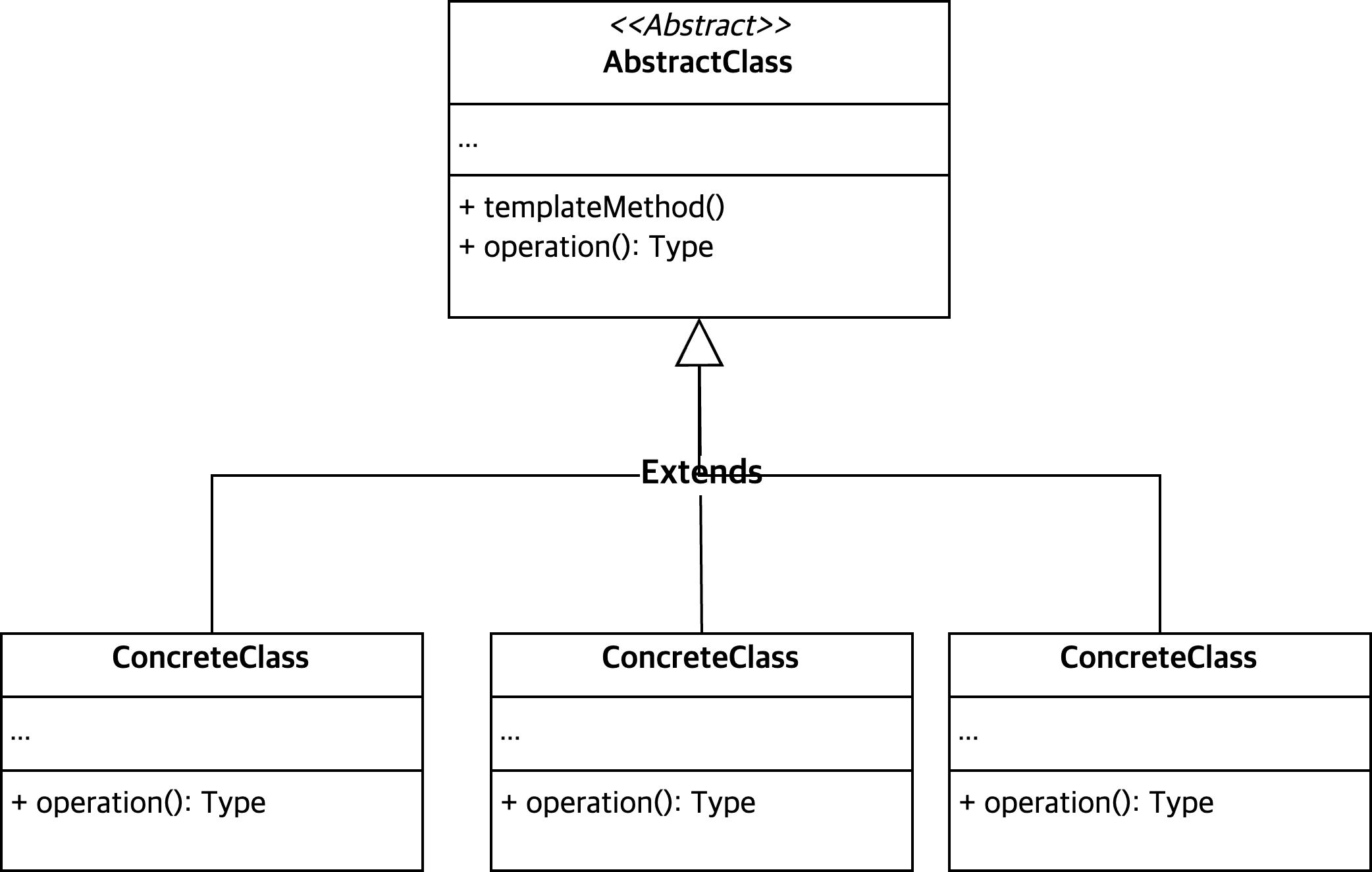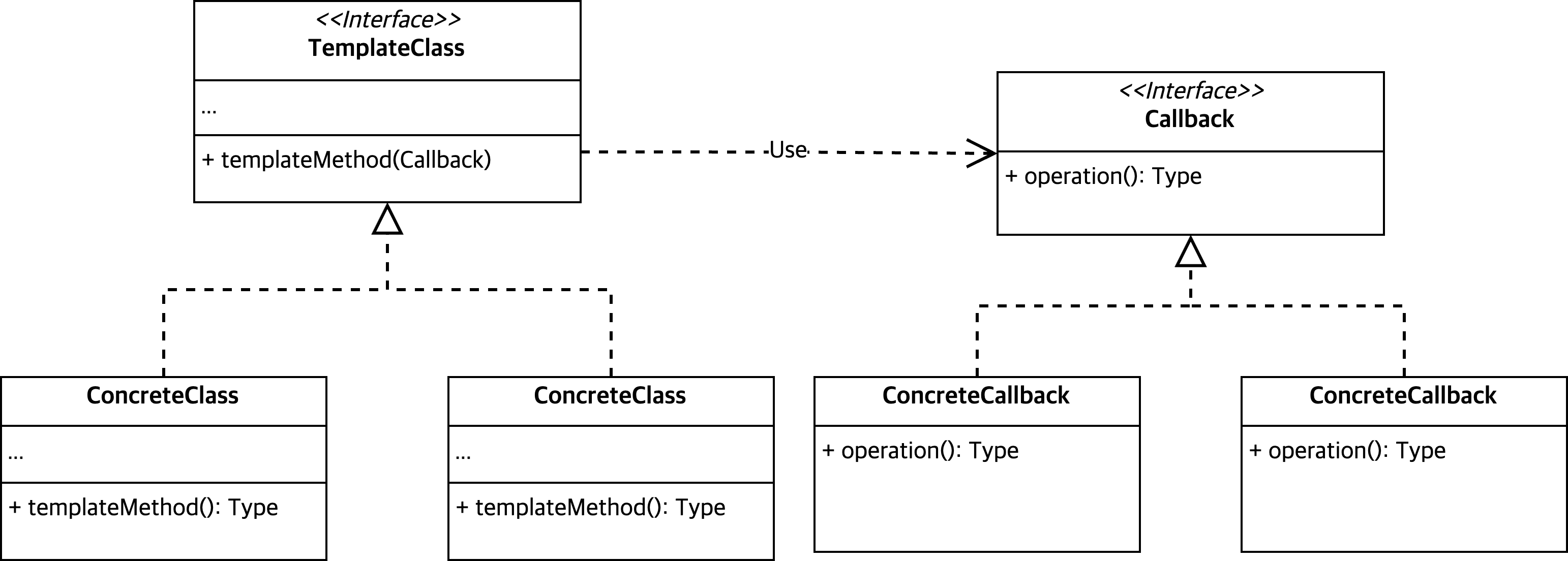Template Method Pattern
Overview
Abstract Class 는 템플릿 메소드를 제공하고
하위 클래스는 구체적인 행위를 정의한다.

Why to use
코드를 재사용하고 구체적인 행위만 분리할 수 있다.
When to use
공통된 로직을 그대로 두고 차이가 존재하는 메소드만 분리하여 SRP / OCP 를 지키고자 할 때.
Pros and Cons
Pros
- 템플릿 코드 재사용
코드 중복 제거 - SRP / OCP 준수
Cons
- 리스코프 치환 원칙 위배 위험
인터페이스 시그니처만 지키고, 실제 동작은 원래 의도와 다르게 이뤄질 수 있다. - 템플릿을 제외한 메소드가 많아질 수록 템플릿 메소드가 복잡해질 수 있다.
추상 클래스 템플릿 메소드에
final키워드를 사용하여 Override 를 방지하라.
Example
- AbstractFileProcessor.java
- PlusFileProcessor.java
- MultiplyFileProcessor.java
abstract class AbstractFileProcessor {
final public int process(String filePath) throws FileNotFoundException {
try (BufferedReader br = new BufferedReader(new FileReader(filePath))) {
OptionalInt result = br.lines()
.mapToInt(Integer::parseInt)
.reduce(this::calculate);
if (result.isEmpty()) throw new IllegalStateException("The file has no content");
return result.getAsInt();
} catch (IOException e) {
throw new FileNotFoundException(e.getMessage());
}
}
abstract protected int calculate(int prevValue, int nextValue);
}
class PlusFileProcessor extends AbstractFileProcessor {
@Override
protected int calculate(int prevValue, int nextValue) {
return prevValue + nextValue;
}
}
class MultiplyFileProcessor extends AbstractFileProcessor {
@Override
protected int calculate(int prevValue, int nextValue) {
return prevValue * nextValue;
}
}
Template Callback Pattern
Overview

Example (2)
- Operation.java
- FileProcessor.java
- SingletonIntOperation.java
- IntegerFileProcessor.java
public interface Operation<T> {
T operate(T accumulator, T currentValue);
}]
interface FileProcessor<T> {
T process(String filePath, Operation<T> operation) throws FileNotFoundException;
}
@RequiredArgsConstructor
enum SingletonIntOperation implements Operation<Integer> {
PLUS((accumulator, currentValue)-> accumulator + currentValue),
MULTIPLY((accumulator, currentValue)-> accumulator * currentValue);
private final BiFunction<Integer, Integer, Integer> operation;
@Override
public Integer operate(Integer accumulator, Integer currentValue) {
return this.operation.apply(accumulator, currentValue);
}
}
public class IntegerFileProcessor implements FileProcessor<Integer> {
@Override
public Integer process(String filePath, Operation<Integer> operation) throws FileNotFoundException {
try (BufferedReader br = new BufferedReader(new FileReader(filePath))) {
OptionalInt result = br.lines()
.mapToInt(Integer::parseInt)
.reduce(operation::operate);
if (result.isEmpty()) throw new IllegalStateException("The file has no content");
return result.getAsInt();
} catch (IOException e) {
throw new FileNotFoundException(e.getMessage());
}
}
}